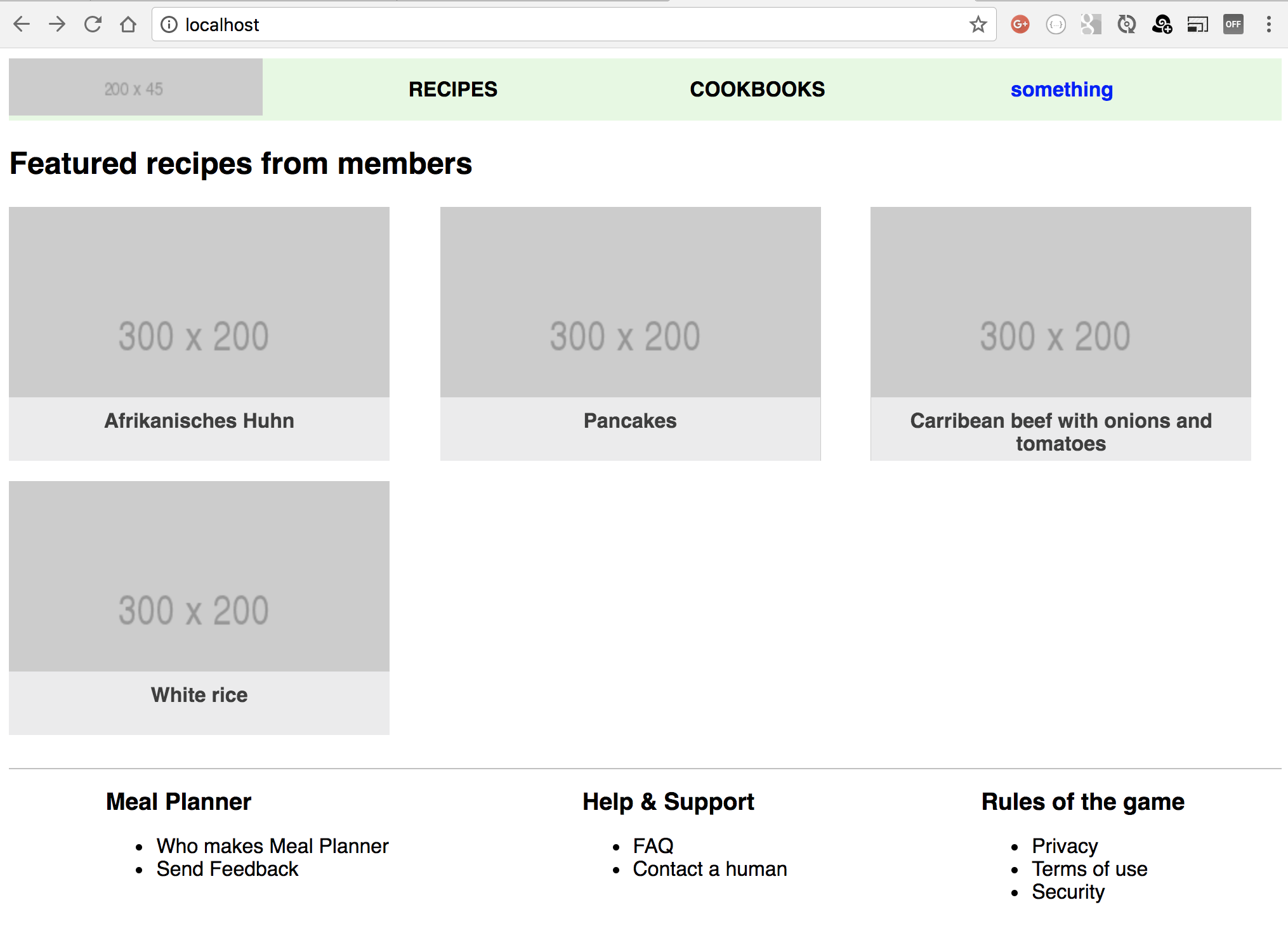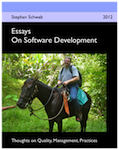Draft of a ROCA- and SCS-style application
I had been working on and off on what I call the Meal Planner application before I discovered the idea of Self-Contained Systems (SCS). The concept made a lot of sense to me and as I was already planning on using containers I quikly set out to make a few changes.
The code for it is in the open at GitHub
Continuous Integration for a single developer
I have to make a confession. I don’t use a CI server regularly :-)
As I am working alone and am not part of a team a tool like Jenkins doesn’t really help me. Frequently I am physically somewhere and only have my laptop. If I were using a Jenkins installation it would have to be accessible over the open Internet, which would require a server somewhere in a datacenter and a VPN connection to reach it or I would be running it exposed to the world. There is really no benefit for me as I’m the only contributor to the codebase.
Instead I build everything around my own command line and that means I focus on shell scripts and a local production like environment.
If at some point I happen to have a team, all of that could be easily put into Jenkins as long a I treat the CI server as some sort of a glorified scheduler.
Target runtime environment
As of now my target runtime environment is a Linux host (Debian/Ubuntu) with nothing else installed but the Docker Engine. I’m trying to keep everything isolated in containers and so the host itself can be quite dumb.
Development workflow, project structure, tooling
Here are a few considerations regarding my development workflow:
- run a multi-piece application locally in a production-like environment
- build and test containers, then store into a repository
- deploy tested containers as a single unit from a repository into production
Unlike in the past I don’t want to deploy a WAR or JAR file to any type of application server. Instead the smallest unit for deployment is a Docker container. The container is also the unit that undergoes testing. If it is found to be good, it gets stored under a version number to a repository and the very same container images is deployed to a Docker engine on production host(s) where the container can be run several times for scaling.
In order to satisfy my first point I use a custom shell script with the following options:
12:52 sns ~/dev/farm/farm_meal-planner (master)$ ./localrun.sh
Usage:
--help displays help
up run without rebuilding
down put all containers down
rebuild rebuild and run
As of today my directory structure looks like this:
-rw-r--r--@ 1 sns staff 330 Feb 23 10:17 Dockerfile-cucumber
-rw-r--r--@ 1 sns staff 183 Mar 3 21:57 Gemfile
drwxr-xr-x 8 sns staff 256 Mar 12 12:56 common
drwxr-xr-x 9 sns staff 288 Mar 12 23:03 cookbooks
-rw-r--r--@ 1 sns staff 512 Mar 18 02:00 docker-compose-dev.yml
drwxr-xr-x 13 sns staff 416 Mar 15 22:35 features
drwxr-xr-x 3 sns staff 96 Mar 14 15:56 frontend
-rwxr-xr-x@ 1 sns staff 1442 Apr 6 12:52 localrun.sh
-rwxr-xr-x@ 1 sns staff 679 Mar 11 14:59 localtest.sh
drwxr-xr-x 9 sns staff 288 Mar 14 15:58 main
drwxr-xr-x 9 sns staff 288 Mar 8 20:14 navigation
drwxr-xr-x 10 sns staff 320 Mar 11 20:19 recipes
drwxr-xr-x 8 sns staff 256 Mar 11 13:02 styles
The directories common, cookbooks, main, navigation, recipes, styles contain independent Maven projects.
localrun rebuild performs mvn package for each of these projects and creates an artifact (JAR file). Then Docker containers are build for each application and eventually started by docker-compose.
In the end I have a production like environment (via Docker engine) on my laptop can I can access the application(s) through http://localhost and see something like this:

To specify what my application(s) are supposed to be doing and for automated testing I use Cucumber. I created another shell script localtest.sh which I can either use to test a specific application or the whole:
00:51 sns ~/dev/farm/farm_meal-planner (master)$ ./localtest.sh --help
Usage:
all Test the whole application on port 80
recipes Test only recipes on port 8080
It sets a few environment variables and then runs Cucumber in the context of a Bundler bundle. As I run it on my laptop I can visually supervise how a real Google Chrome browser or any other is being used to access the application(s).
I’ve done some experiments to run it unattended on Jenkins in the way described in Testing with Selenium Docker container but at the time being I’m not interested in using Jenkins for the reasons stated earlier. That will likely change in the future when running all my acceptance tests takes longer than 5 minutes and I want to offload that task to a machine.
| Previous | 07 Apr 2018 | Next |
This article has been posted to social media sites. There might be comments. Just follow the links:








